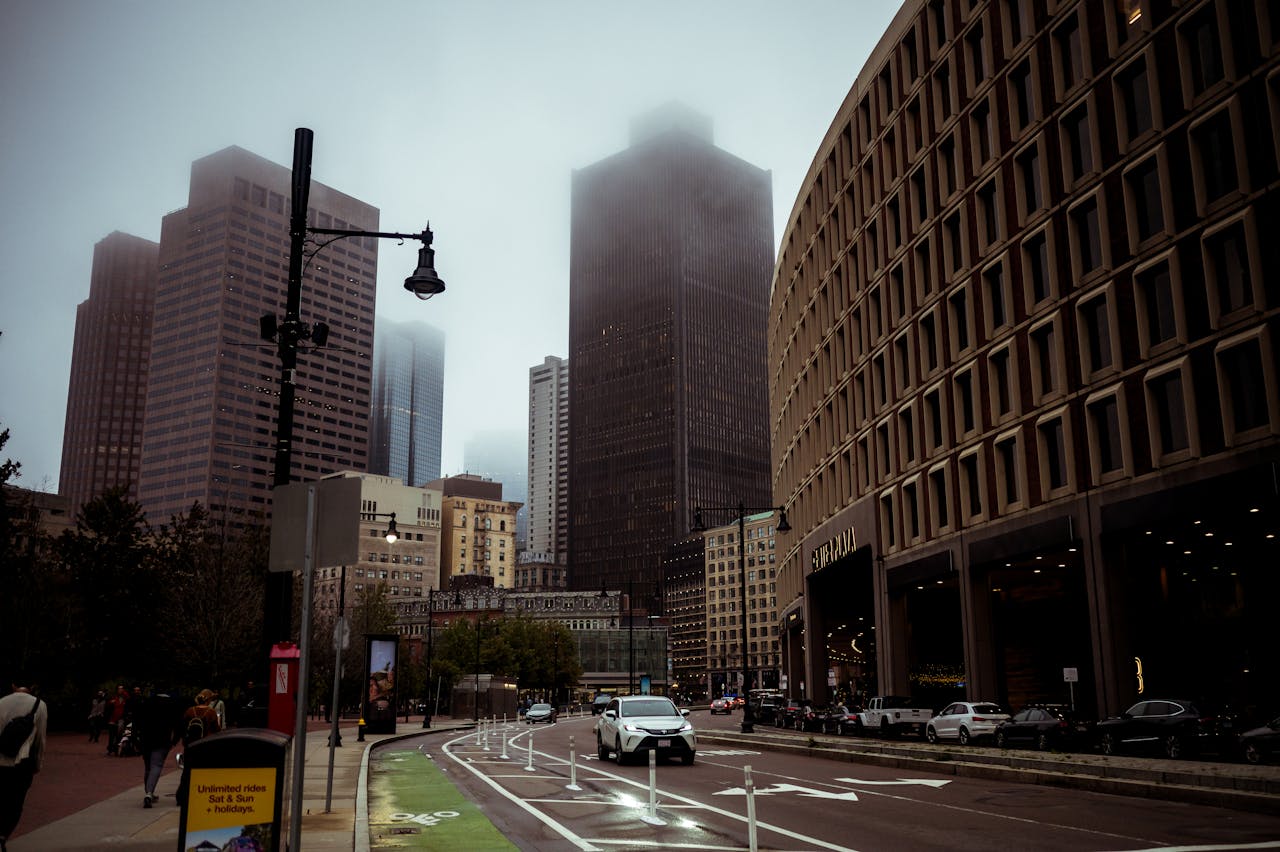Navigating Your First Big City Move:
From Choosing a Vehicle to Picking an Apartment

Making your first move to a big city is a pivotal life shift that comes down to more than just updating your address and letting friends and family know where to find you.
From decisions over what car to take with you (or whether to use one at all), to the complexity of narrowing down your options for an apartment, let alone a neighborhood, this won't be a smooth ride if you don't put in the hard work.
To take the edge off, here are some tips for a few of these fundamental steps that will really make a difference to aspiring urbanites.
Wrangling the Wheel of Vehicle Choices for Urban Roads
There are over 300,000 cars on Boston's roads, and an incredible 278 million nationally, so if you're moving for a fresh start in the big smoke, choosing your vehicle wisely could be as decisive as any other decision you make. Here are some key considerations:
Fuel Efficiency Is King
City driving often means stop-and-go traffic. A fuel-efficient car saves money and helps reduce your carbon footprint (think hybrid or electric - which can even be hired rather than bought outright).
Size Matters (Smaller is Better)
With tight parking spots and narrow streets, compact cars run circles around larger vehicles when maneuvering through the concrete jungle.
Maintenance and Upkeep
Reliability is non-negotiable. Opt for models known for their longevity and lower cost of maintenance. If buying used, check for the maintenance history and other details, and always buy from a reputable vendor. For instance, you can always encounter high-quality second hand cars in EchoPark Duluth, just as you can encounter well-liked dealerships in Boston and the surrounding area.
Resale Value Resonates
Eventually, you might upgrade or change lifestyles. A car with high resale value can ease financial transitions down the road.
Insurance Impact
Rates fluctuate wildly based on zip codes. Investigate how your new address affects premiums before picking a set of wheels.
In this context, choosing to take a trusty sedan along could represent an ideal balance – efficient enough to keep your budget in check, small enough to navigate bustling boulevards easily, yet comfortable for those weekend getaways when the skyline becomes a speck in the rearview mirror. Better yet, a city car like a Kia Rio or Chevrolet Bolt might be even more suited to your urban living ambitions.
Apartment Considerations in the Heart of the City
Apartment hunting in a new urban environment is no leisurely stroll through the park. Here's what to keep top of mind:
Parking Provisions
Does your building offer a spot to tuck away your vehicle? If not, nearby options could add a considerable sum to your monthly expenses.
Proximity and Public Transport
Evaluate accessibility to public transportation. It's often quicker and cheaper than driving, especially during peak hours (check for rail stops or bus routes).
Balancing Act - Budget vs. Location
Living centrally means shorter commutes but often steeper rent. Weigh this against affordable outskirts that might require more travel time.
Safety Scores
Research neighborhood crime ratings. Your peace of mind is invaluable when it comes to enjoying your new city life.
Building Amenities
A gym, laundry facilities, or a doorman can be game-changers that justify extra cost (consider these perks in your budgeting plan).
Your apartment needs to be an oasis you can escape to when each day of living large in the city comes to a close, so picking it can't be rushed or deemphasized. Choose with care and patience, and this decision will repay itself many times over in the months and years to come.
Budgeting for the Big Leap
Your budget is the framework upon which your urban dreams are built or broken. Before you take the plunge, give keen attention to these budgetary elements:
Cost of Living Reality Check
Cities often come with a higher price tag on everything from groceries to entertainment. Set realistic expectations and plan accordingly. For instance, a single person living in Boston can expect monthly costs of $1,441 before rent comes into the equation - and for families this rises to over $5,000, according to Numbeo.
Moving Expenses
Beyond rent and deposits, factor in the cost of physically moving—including possible storage fees if your move-in dates don't align perfectly.
Emergency Fund Essential
Unforeseen events lurk around every corner. An emergency fund can prevent a financial scrape from becoming a disaster.
Income Streams Stability
Ensure your job situation is solid or have a backup plan. Job markets can be as volatile as city life itself, even in economically resilient cities like Boston.
Frugality Isn't Futile
Embracing a minimalist lifestyle initially, especially with discretionary spending, may offer breathing room as you adjust to new financial demands.
Bear in mind that your first year in the city will likely be the most unpredictable, financially speaking. Build that into your calculations, and stress-test them. That way, this transition is a chance to get better at managing your money, rather than developing bad habits.
Final Thoughts
Moving to the city for the first time will feel like stepping outside of your comfort zone, which is why all of the points we've covered have to be plotted out as part of your personal plan of attack. Trust us, this will be worth the effort once you're set up in your dream apartment with a cool car parked outside.